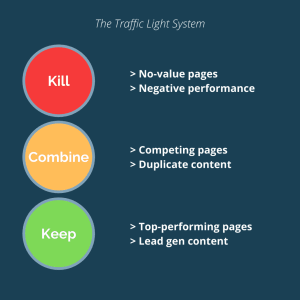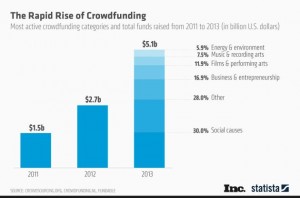Greg Krehbiel’s path to becoming a CDP savant began with a degree in geology that turned into a career in publishing.
In this series, we dig deeper into the stories of our expert contributors. This interview has been edited for clarity and length.
Greg Krehbiel had a decades-long career in B2B and B2C publishing during which he did pretty much everything short of hand-craft individual pixels. He is now president of The Krehbiel Group, a digital consultancy that solves technology, strategy, operations and process problems for publishers. He also has one of the more unusual and interesting career paths of any marketing SME I’ve ever spoken to.
Q: Did you start out wanting to be in marketing?
A: As a kid, I wanted to be a paleoanthropologist. Then when I got older, I wanted to be a professional trumpet player. When I got to college, I was thinking about going into chemical engineering, but I ended up getting a bachelor’s degree in geology.
And then I wanted to be a pastor and when I was going to seminary I took a job in publishing just because I was offered a job in publishing. I didn’t have any great love for publishing. I didn’t know how to write. I didn’t know how to spell. I didn’t know how to type. I didn’t know anything about publishing. I’ve never taken a journalism class, never did anything in publishing whatsoever, but got this job in publishing and learned on the job, with Strunk and White in one hand and the Mac typing tutor at lunch and just kind of learned the business.
I’ve just been in publishing forever and I’ve done almost everything there is to do in publishing. I’ve done production, editorial, marketing, IT. I’ve been in management, I’ve done product development. I’ve done all kinds of different things.
Q: How do you go from geology to publishing?
A: I was with Thompson Publishing Group and they did books on natural gas regulation. I got the job because I had a geology degree and I thought that would have something to do with natural gas. They have nothing, nothing whatsoever to do with natural gas regulation. They do books on grants management, human resources, energy, environment, other kinds of things. And that was B2B and then after a while, I got hired by Kiplinger to be their director of marketing operations.
The reason I got that job was I’m very good at being sort of the intermediary between tech people and non-tech people. Because I have kind of a technical background, I understand technical stuff decently. I’m not a programmer but I can program. I know how things work. So I ended up being the in-between, between the business side and the IT side.
Q: Now you’re a consultant. What do you focus on?
A: Generally speaking, I focus on customer data platforms (CDPs), but I end up doing all kinds of different things. I’ve helped people with moving from one ESP to another. I’ve helped people redesign websites. I’ve helped with content delivery and I have helped with CDPs, too. Looking for them, configuring them, cleaning them up, doing various use cases, that sort of thing.
Q: You know so much about CDPs, what got you interested in that?
A: The way I got introduced to CDPs was at a Specialized Information Publishers Association conference — back when it still existed. We were listening to this guy talk about how he was using data, and he had a data lake and he had a customer data platform and he had a DMP — he had all these different things. And he had the ability to take all this data and get a better picture of what customers are doing and what they want. That fit very well into all kinds of things that I was very used to doing with digital marketing.
Before, people were getting data from things like A/B tests on emails and landing pages, or you’d look at web analytics in somewhat of a cursory way. You’d try to make conclusions about what people are doing based on those kind of characteristics.
Now, the CDP takes that to another level, both in terms of being analytical and figuring out what’s going on, but also in terms of responding to people in an appropriate way for that person.
Because, if you do an A/B split, and you’re doing an email to sell bicycles, you can have either a picture of the bicycle, or a picture of a pretty girl riding the bicycle, right? And the pretty girl riding the bicycle wins. All right, that’s nice. But now you’re talking about averages across the entire population.
What about the fact that some people prefer the bicycle and some people prefer the pretty girl on the bicycle? CDP allows you to say fine, these people get the bicycle and these don’t. It takes the whole question of how you understand your market and how you respond to your market to a new level. And it makes it possible to personalize and customize things much better.
Q: Is there a common misconception about CDP that clients come to you with?
A: Yes, the biggest mistake is people don’t think carefully about their use cases before they get involved with the CDP. They sort of think the CDP is going to magically solve their problems because once they install it they’ll have all this data. Well, you have to know what to collect, you have to know how to organize it. You have to know what you’re going to do with it.
So, before someone tries to get a CDP, they really need to think about what information they want to collect. Why do I want to collect it? What am I going to do with it? How is this going to lead towards something better for the subscriber or me?
A lot of times people will get a new technology like that and it’ll just sit there and nobody will actually use the technology because they didn’t have a plan ahead of time about what they wanted to do.
The post Spotlight on the expert: Greg Krehbiel appeared first on MarTech.
MarTech(0)



